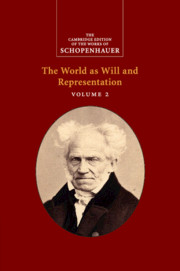Chapter 32 - On Madness
Published online by Cambridge University Press: 30 June 2022
Summary
True mental health consists in a perfect recollection of the past. Of course this should not be understood as our memory's retaining everything: the path we have already traversed through life dwindles away in time, just as a wanderer who glances behind him sees his path dwindle away in space, so that we sometimes have difficulty distinguishing particular years, and days become for the most part indiscernible. But in fact only events that are exactly the same and endlessly repeated, whose images cover each other over, as it were, only these events run together in memory to the point where they become indiscernible: on the other hand, every event that is somehow distinctive or meaningful can be relocated in memory, provided the intellect is normal, strong and completely healthy. – In the text I presented madness as the torn thread of memory that runs steadily ahead, though with constantly diminishing fullness and clarity. The following remarks will serve to confirm this.
A healthy person's memory possesses certainty concerning an event he witnessed, and this certainty is regarded as equally settled and secure as his present perception of a thing; and so his sworn testimony to the event will establish it before a court of law. By contrast, the mere suspicion of madness will weaken a witness's testimony at once. This then is the criterion that distinguishes mental health from insanity. As soon as I doubt whether an event I remember actually took place, I cast the suspicion of madness on myself, unless I am uncertain whether it was merely a dream. If another person doubts the actuality of an event I have recounted as an eye witness without impugning my honesty, then he thinks I am insane. If, through constant retelling of some originally concocted event, someone eventually comes to believe it himself, then he really is, on this one point, already insane. We can attribute witty ideas, isolated, shrewd thoughts and even accurate judgments to the insane, but no one will give credence to their testimony concerning past events. In the Lalitavistara, the well-known life story of the Buddha Shakyamuni, it is said that at the moment of his birth, the sick throughout the world became healthy, the blind began to see, the deaf began to hear, and the mad ‘recovered their memory’.
- Type
- Chapter
- Information
- Schopenhauer: The World as Will and Representation , pp. 416 - 419Publisher: Cambridge University PressPrint publication year: 2018

